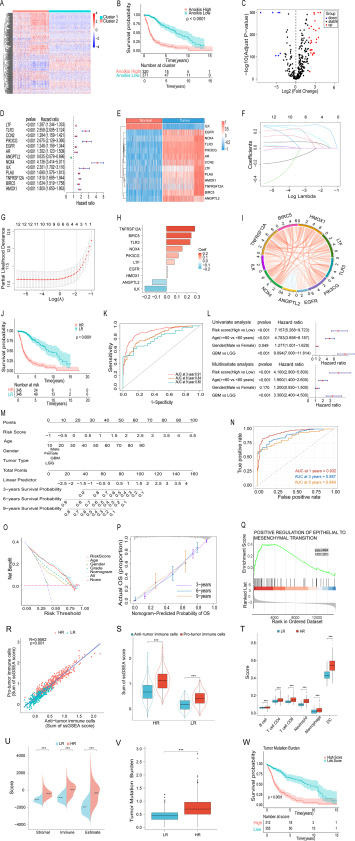
Anoikis-related gene signature associates with the immune infiltration and predicts the prognosis of glioma patients


Glioma is the most aggressive and incurable brain tumor.1 Anoikis is programed apoptosis in which cells are detached from the cellular matrix and suspended to death.2 It plays a critical role in cancer progression. Cancer cells overcome anoikis via various methods to continue their progression and metastasis. But the role of anoikis in gliomas remains elusive. By comprehensively studying the glioma patient's data in public databases, we built an anoikis-related genes risk nomogram for glioma and validate independently. We found the high-risk groups were enriched in the anoikis and immune-related pathways. Further analysis of high-risk score groups revealed that they had higher immune infiltration, lower IDH-mutations, higher tumor mutation burdens and higher tumor immune dysfunction and exclusion scores, indicating that there might not be successful for the high-risk score glioma patients in immunotherapy. In conclusion, we built a risk modal by applying the analysis of anoikis-related genes and immune signature genes, and this risk modal can predict glioma patients' clinical outcomes successfully and accurately.
